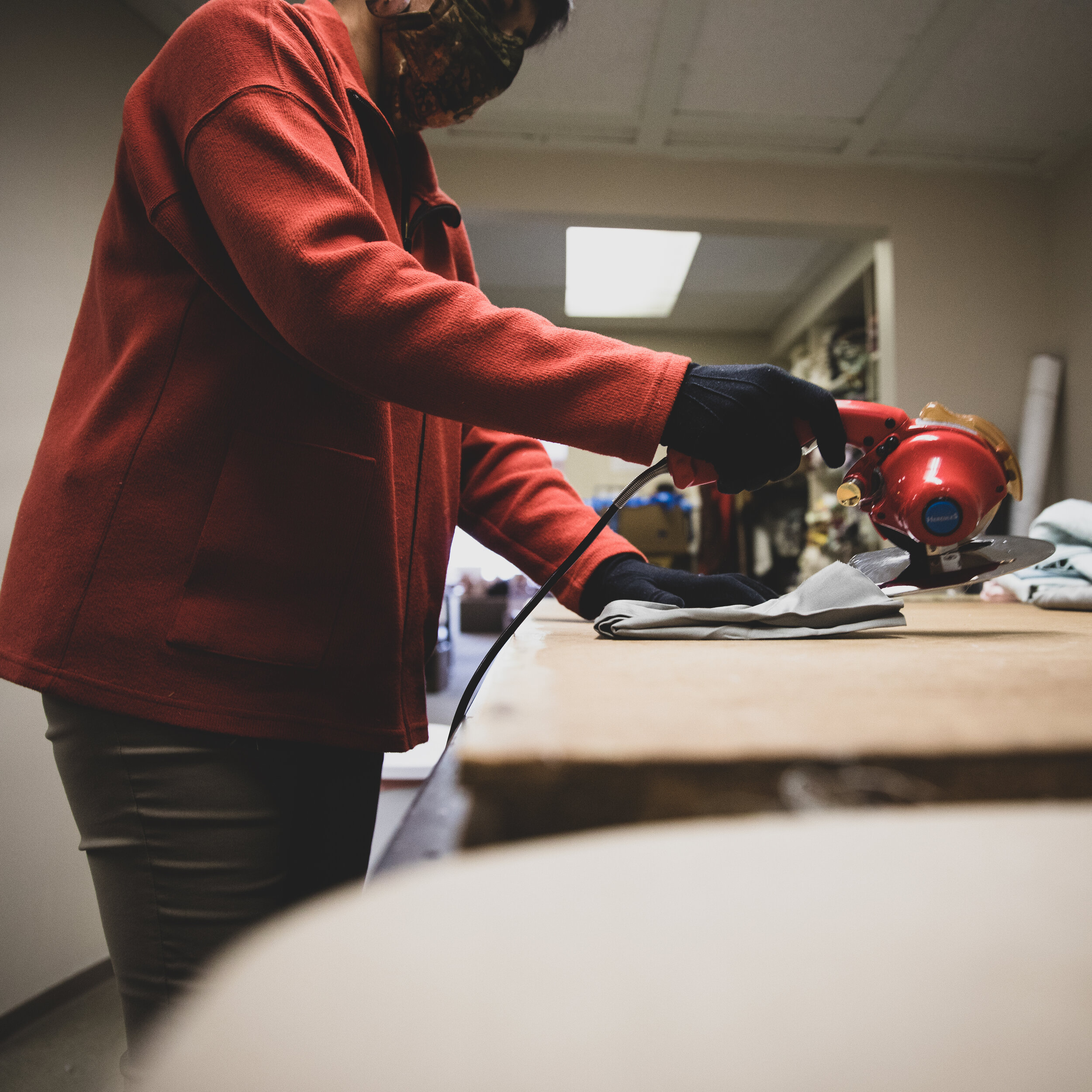Refugee Artisan Initiative - Ming-Ming Tung-Edelman
Ming-Ming Tung-Edelman - Refugee Artisan Initiative
Ming-Ming Tung-Edelman - Interview Transcript
It's definitely bigger that what we ever imagined. Our artisans have become really good at making masks. Some have enlisted their neighbors and their spouses, so even though we're a women empowerment program, during COVID, we are thinking out of the box, so great, you train your husband to make masks. Go for it. And today, we're actually interviewing two more artisans, two refugee women through Refugee Women’s Alliance, their clients–and they already know how to sew. So we're tapping into more sewers, especially recently arrived refugee immigrant women. This is something they already have the skills, they just don't know how to plug- in, so here we are, ready to provide them with work that they can do from the safety of their home, and being paid a living wage, and support their family.
I'm actually a pharmacist by background, and it just hit me hard that we didn't have enough PPE for frontline workers, so immediately we, starting March 20, we retooled, and started making masks, shields, and hospital gowns, as well, to supply the need of the medical community. Since then, we have provided over 6,000 masks in the last month, mainly donations, to health care workers, frontline workers, refugees, undocumented immigrants, vulnerable populations, including prisoners. Currently, we are working on our first commissioned project by an organization called Build A Nest. We are committed to make 7,000 masks in a 10-day challenge for a New York City area hospital, and that's where we are.
This is our maker space. We call it the maker space, refugee artisan maker space where we actually do on-site training, so we not only make our product lines. What we do is, we team up with local companies such as Splash Fabric and pattern companies that belong to Seattle Made, Metamorphic Gear, and other companies that need small batch manufacturing jobs because it is very difficult in Seattle to want to have a small batch of goods made, maybe just in the teens or the small, low hundreds, and you wanna bring your product to the market, but you can't find people to make them, and sew them, so we are a solution. They mostly come here for training for projects, but a lot of work we'll design so they can do from home, so it's perfect when COVID come. It didn't change our model. It just emphasized that this model works.
So I started Refugee Artisan Initiative about, in 2016. I'm an immigrant myself. I come from Taiwan. I come here when I was 15, 16 years old, and my background is that my grandmother was a seamstress, and able to raise my mom and my two other uncles as a single mother, so I understand the power of tools, plus skills can transform lives. I always wanted to do something to give back to the community. I have over 20 years career as a clinical pharmacist and I always loved fashion, so I took fashion certificate program at UW about five years ago and became really good friends with my instructor and learned about her time teaching refugee women how to sew. It inspired me to spark an idea. Why not combine the women who know how to sew and, at the same time, realizing that there's so much waste in the fashion industry, and these women need work, combine these two to create work, and that's how we started.
So when COVID hit, we already had a lot of materials, and, as a matter of fact, we got over 100 sets of bedsheets from a local company. Apparently, if you buy bedsheets online, and you don't like it for whatever reason, the color, the feel, you return them, they are not allowed to resell them, so we were the beneficiary of these bedsheets, and we were just trying to figure out what to do with them, maybe make them into shower curtains, or other things, and they're all 100% cotton, so when COVID come, these were actually the best materials to make them into masks, so that's what we've been doing, making a lot of masks, mainly from these wonderful 100% cotton bedsheets from California Design Den, donated to us, and also, whenever people want some special ones, we will try to look for what we have an accommodate.
Our goal is to empower refugee and immigrant women with the skill to be self-sufficient, and we're here to serve these women, make sure that those who have the desire to make the American dream come true, and providing with their skill to support their family, we're here to serve, and our secondary is that we're very environmental-driven. We wanna be kind to Mother Earth, so we wanna make things based on what's already available, and combine the skill they have. That's how we envision everything we make.








